The balance scale . . . what is it for?
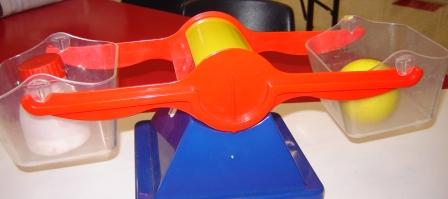
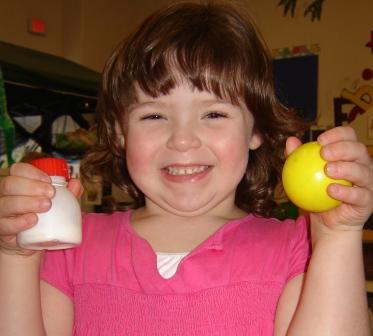
If you were to ask a scientist she would tell you, “it is to determine the comparative weight of two or more objects.”
Miss Julie posed the same question to the afternoon Robins during their enrichment hour (2:00 to 3:00 everyday). What was their response?
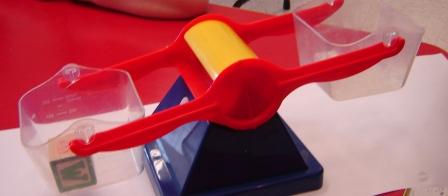
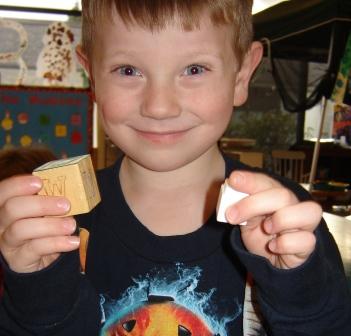
“It’s to weigh things,” they all agreed.
Miss Julie asked another question to the young scientists, “what can we find out about weight by using the balance scale?”
The children responded with words such as: heavier, lighter, same, more, less and weight. Then Miss Julie gave them an assignment. “Go find two objects, but they both must fit in a bucket of the scale.
The children eagerly sought out two objects and brought them back. They practiced making scientific predictions about the weight of the objects. Each child had a turn to weigh their objects and then make a conclusion about the results and state them to the group.
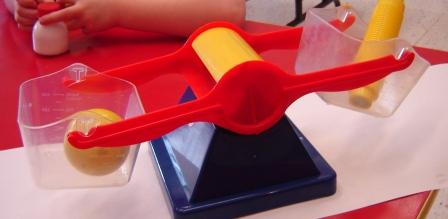
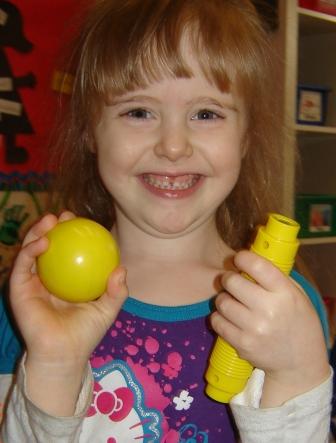
So often we, as adults, are intimidated by science and often pass our intimidation on to our children. But, it doesn’t have to be so. Simple activities will help young children to see that science is everywhere! Children will be encouraged to ask questions and at the same time hone their scientific skills such as observation and measurement.
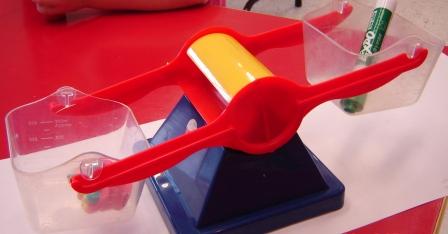
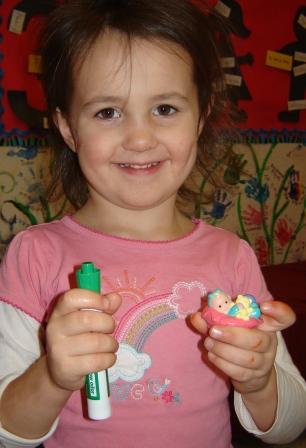
Here are some simple activities for home:
- Explore the properties of toys in the bathtub. Which toys sink and which toys float?
- Start a rock collection. Examine and sort the rocks by characteristics such as: color, weight, and texture.
- Encourage “planet friendly” habits at home. Let your child take the responsibility for the recycling at home. Discuss with your child ways to conserve water and energy at home.
- Involve your child in meal preparation. Besides the lessons of science in cooking, discuss with your child good nutrition habits and balancing the food groups.
So forget about the white lab coat and the goggles . . . instead, grab your child’s hand and head outside, to the water faucet, or to your kitchen cupboard. Science is all around us and young children are natural scientists. Let’s support and encourage their science knowledge!
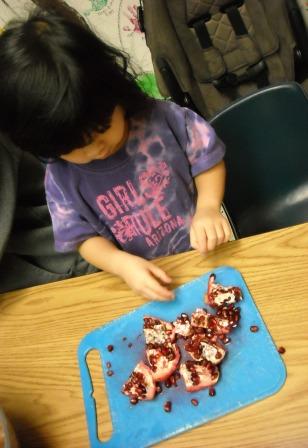

Exploring a pomegranate!
Here are some websites with fun at home science activities to share with your child:
http://www.sciencekidsathome.com/science_experiments/index.html
http://www.tryscience.org/parents/se_1.html
http://www.discoverthis.com/article-science-activities-home.html
http://www.stevespanglerscience.com/?gclid=CJ7z9tb2n54CFSWjagodZQ8elA

 Schedule Tour
Schedule Tour